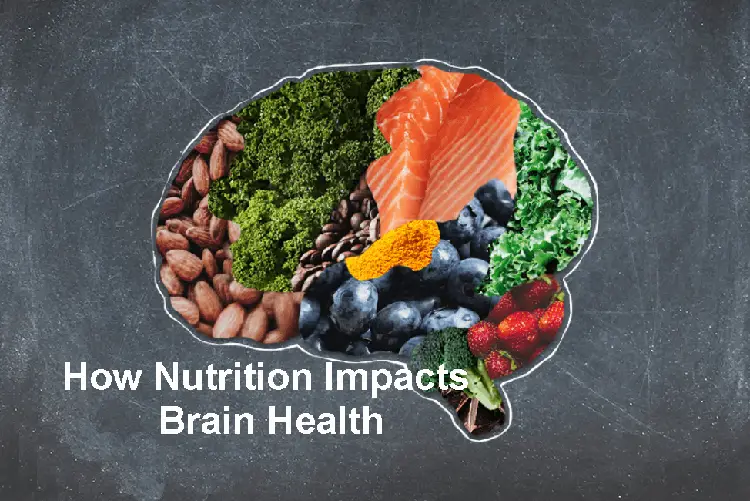The brain is a remarkable organ that plays a critical role in our everyday functioning. It not only controls our thoughts, emotions, and behavior but also regulates various bodily functions. While we often associate brain health with mental exercises and cognitive activities, nutrition also plays a crucial role in maintaining optimal brain function. In this article, we will explore the fascinating connection between nutrition and brain health and how the foods we eat can impact our cognitive function.
Key Nutrients for Brain Health
- Omega-3 Fatty Acids: Omega-3 fatty acids, such as docosahexaenoic acid (DHA) and eicosapentaenoic acid (EPA), are essential for brain health. These fatty acids are found in fatty fish like salmon, trout, and sardines, as well as in walnuts, flaxseeds, and chia seeds. Research suggests that omega-3 fatty acids can reduce inflammation, support brain cell structure, and improve cognitive function.
- Antioxidants: Antioxidants, including vitamins C and E, beta-carotene, and flavonoids, help protect the brain from oxidative stress. Foods rich in antioxidants include berries (such as blueberries, strawberries, and blackberries), dark leafy greens, nuts, and seeds. These antioxidants can help reduce the risk of cognitive decline and age-related brain diseases.
- B Vitamins: B vitamins, particularly vitamin B12, play a vital role in maintaining healthy brain function. Deficiencies in B vitamins have been associated with cognitive decline and mood disorders. Good sources of B vitamins include fish, meat, eggs, dairy products, and fortified cereals.
The Gut-Brain Connection
Did you know that there is a strong link between the gut and the brain? The gut-brain connection, also known as the gut-brain axis, refers to the bidirectional communication between the brain and the gut microbiota. The gut microbiota consists of trillions of microorganisms that reside in our digestive system. Emerging research suggests that an imbalance in the gut microbiota, known as dysbiosis, can contribute to various mental health conditions, including anxiety and depression.
Maintaining a healthy gut microbiota involves consuming a diverse range of fiber-rich foods, such as fruits, vegetables, whole grains, and legumes. These foods promote the growth of beneficial gut bacteria, which can, in turn, positively influence brain health and function.
The Impact of Sugar and Processed Foods
While certain nutrients are beneficial for brain health, it’s equally important to be mindful of foods that can have a negative impact. Diets high in added sugars and processed foods have been linked to cognitive decline and an increased risk of neurodegenerative diseases. These foods can lead to inflammation, insulin resistance, and oxidative stress, all of which can harm brain structure and function.
To support brain health, it’s best to minimize the consumption of processed foods, sugary beverages, and snacks. Instead, focus on a diet rich in whole, nutrient-dense foods that nourish both your body and your brain.
Conclusion
In conclusion, nutrition has a profound impact on brain health. Consuming a balanced diet that includes key nutrients like omega-3 fatty acids, antioxidants, and B vitamins can support cognitive function and reduce the risk of age-related brain diseases. Additionally, maintaining a healthy gut microbiota through a diet rich in fiber promotes a healthy gut-brain connection. On the other hand, diets high in added sugars and processed foods can have detrimental effects on brain health.
By making informed choices about the foods we eat, we can nourish our brains and support optimal brain function throughout our lives. Remember, what we put on our plate can have long-lasting effects on our cognitive well-being.
So, let’s choose wisely and prioritize brain-boosting foods for a healthier mind!

